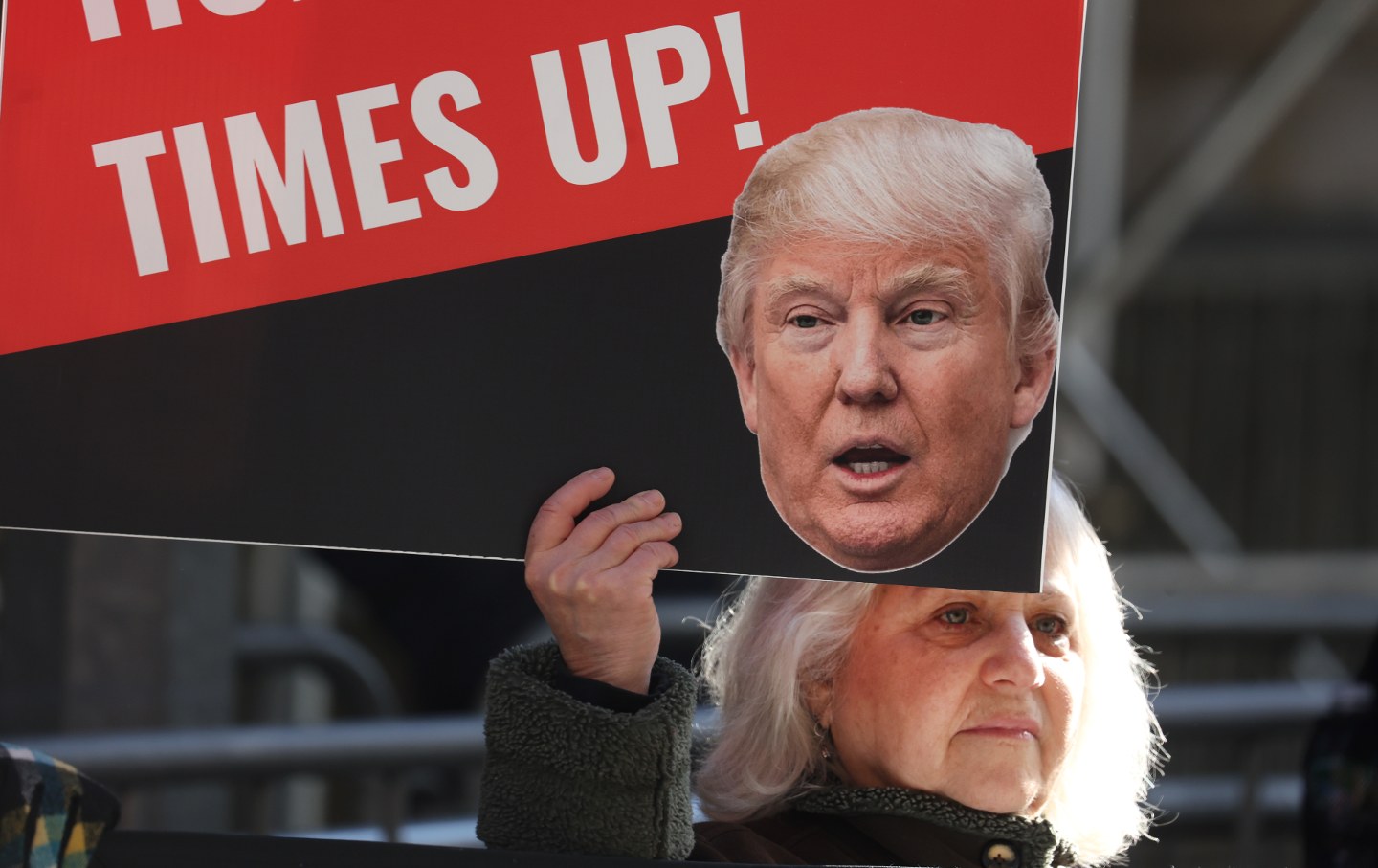With the decision of New York’s grand jury to indict Donald Trump on more than 30 counts of falsifying business records, the United States enters uncharted waters. It would be historic even if all that happened is that a former president, for the first time, faced criminal charges. But Trump is not just any former president. He’s currently running for the GOP nomination. That fact, combined with his long-standing penchant for trying to delegitimize legal investigation into his actions and his use of the presidential pardon power for political advantage, means that Trump’s indictment is going to be a major issue in the next presidential election.1
My colleagues Elie Mystal and Chris Lehmann have offered some essential cautionary notes to curb the enthusiasm of delighted progressives. As Mystal suggests, making a case based on lying about hush money paid to former presidential amour Stormy Daniels might be difficult. It’s certainly far less serious than any of the other current investigations into Trump’s actions, which range from obstruction of justice to pressuring election officials. But now that Manhattan District Attorney Alvin Bragg has broken the taboo against indicting former presidents, we can hope that other prosecutors will be willing to follow the law wherever it leads them. It’s beyond dispute that there are a myriad of serious outstanding accusations against Trump.2
Lehmann quotes Ankush Khardori, a former Justice Department prosecutor, on the necessity of seeing the political dimensions of the case: “As far as justice is concerned, if what you want for the country is to see Donald Trump in prison, your first order of business is to see that he does not win in 2024—and that no Republican wins.”3
The implications of that statement are worth pondering. One of Trump’s last acts as president was offering clemency to five former political associates: Paul Manafort, Roger Stone, Michael Flynn, and Stephen K. Bannon. All these figures, aside from Bannon, had been charged as part of the investigation into Trump by special counsel Robert Mueller. And Bannon himself was someone who had potentially damaging information about Trump’s incitement of a riot on January 6, 2021. So it’s hard not to avoid the conclusion that in pardoning his associates Trump was protecting himself. There was even talk of Trump pardoning himself, an untested constitutional power.4
As the criminal case against Trump winds itself through the courts, the reality of presidential pardon power has to be considered. If elected president in 2024, Trump could pardon himself. If any Republican other than Trump wins—for example, Florida Governor Rick DeSantis—then they could pardon Trump.5
Whoever the 2024 GOP nominee is, the pardon of Trump will be on the ballot. The fate of Trump will be decided by voters, not just the legal system.6
We already have some idea of how the indictment will play as a political issue. Responding to the news of the indictment, Trump released a statement saying,7
This is political persecution and election interference at the highest level in history.… I believe this witch hunt will backfire massively on Joe Biden. The American people realize exactly what the radical left Democrats are doing here. Everyone can see it. So, our movement and our party, united and strong, will first defeat Alvin Bragg and then we will defeat Joe Biden, and we are going to throw every last one of these crooked Democrats out of office so we can make America great again.8
Ron DeSantis weighed in with a lengthy tweet:9
The weaponization of the legal system to advance a political agenda turns the rule of law on its head. It is un-American. The Soros-backed Manhattan District Attorney has consistently bent the law to downgrade felonies and to excuse criminal misconduct. Yet, now he is stretching the law to target a political opponent. Florida will not assist in an extradition request given the questionable circumstances at issue with this Soros-backed Manhattan prosecutor and his political agenda.10
DeSantis’s statement was demagogic grandstanding on a number of fronts. The gratuitous invocation of Soros was an all-too-familiar anti-Semitic trope. The issue of extradition is just a distraction, since Trump’s attorneys have said he would surrender. But by claiming he would refuse extradition, DeSantis was saying he’d violate the clear letter of the Constitution.11
Between the statements by Trump and DeSantis, we see a unified political defense: The prosecution is illegitimate, tarred by association with Democrats, and should be treated as a farce.12
This will be part of the 2024 GOP presidential campaign. Which means Trump will face two juries: 12 of his peers in New York. And tens of millions of his fellow citizens at the ballot box.13










